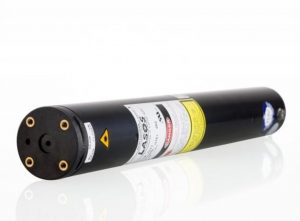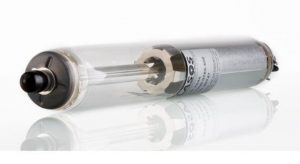Additional Resources
Whitepapers:
Blogs:
Videos:
Lasers designating 0.5mW of output power (also called 0.0005W lasers) can have either CW (continuous-wave) or pulsed output. CW Lasers are always defined in average output power. Pulsed Lasers with an output power defined in Watts or Milliwatts usually define the laser’s average power, not the peak power of the laser.
0.5mW lasers are very low power lasers. Depending on the wavelength, lasers that have a low output power level in this range can be good for various applications such as confocal fluorescence microscopy, holography, interferometry, non-linear spectroscopy, optogenetics, particle measurement, and for RGB light sources.
| Picture | Part Number | Type | Wavelength (nm) | Output power (W) | Mode | Output | Linewidth | Duty | Package |
|---|---|---|---|---|---|---|---|---|---|

|
LGK 7650 | HeNe Lasers | 633 | 0.0005, 0.001 | Single-Mode | Free Space | |||

|
LGK 7786 | HeNe Lasers | 543 | 0.0005, 0.001 | Single-Mode | Free Space | |||

|
LGR 7656 | HeNe Lasers | 633 | 0.0005 | Single-Mode | Free Space |
The LGK series of HeNe laser modules boast an excellent TEM00 beam, robust mechanical design, a long service life of up to 30,000 hours, and are available in 543, 594, and 632.8nm wavelengths, with output powers up to 20mW. Choose between standard and customized models, with options for single or multimode, random or linear polarization, Brewster window tubes, and fiber coupling. Designed for long life, low noise, and high stability, with many customization options, these HeNe lasers are perfect for spectroscopy, interferometry, holography, and more!
The LGR series of HeNe laser replacement tubes provide unparalleled performance for a wide range of applications, have a robust mechanical design, excellent beam quality, and a long service life of up to 30,000 hours. Standard and customized models are available at 632.8nm with output powers up to 10 mW and options for side line suppression, polarization switching elimination, two longitudinal modes, magnetic field stability up to 3 G, and split frequency versions. These advanced options provide versatility for a range of sophisticated and high-precision scientific applications.